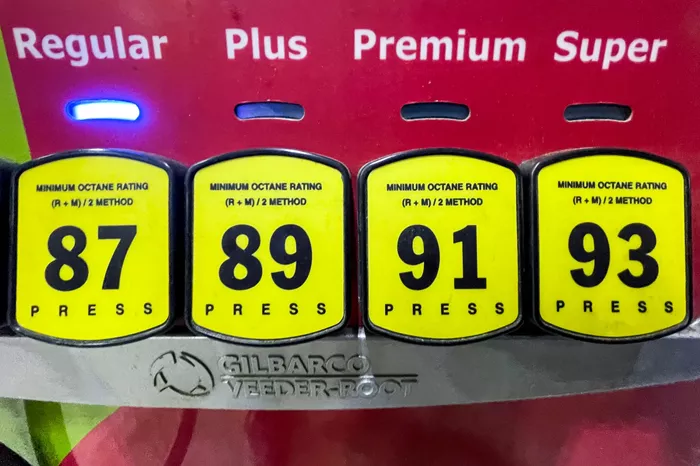Premium fuel is a term commonly used at gas stations, promising enhanced performance and engine efficiency. Central to its classification is the octane rating, a measure of a fuel’s ability to resist engine knock—a detrimental phenomenon in combustion engines. Let’s delve into what octane really means, how it affects your vehicle’s performance, and whether premium fuel is always the best choice.
Octane Basics
Octane rating refers to a fuel’s ability to resist knocking or pinging in an engine. Knocking occurs when fuel ignites prematurely in the engine’s combustion chamber, causing vibrations and potentially damaging the engine over time. Higher octane fuels are formulated to withstand higher compression ratios and temperatures without prematurely combusting, thus reducing the risk of engine knock.
Octane Numbers Explained
Octane ratings are typically displayed on fuel pumps as two numbers, such as 87, 89, and 91 (or higher). These numbers represent the Research Octane Number (RON) and the Motor Octane Number (MON). RON measures the fuel’s performance under mild conditions, while MON assesses performance under more severe conditions. In most regions, the octane rating displayed is the average of these two numbers, known as the Anti-Knock Index (AKI) or (R+M)/2 method.
Premium vs. Regular Fuel
Premium fuel generally has a higher octane rating than regular fuel. In the United States, regular unleaded gasoline typically has an octane rating of 87 AKI, while premium gasoline ranges from 91 AKI to 93 AKI or higher. The higher octane rating of premium fuel is intended to benefit vehicles with high-performance engines, turbocharged engines, or engines that require greater resistance to knocking due to higher compression ratios.
Benefits of Using Premium Fuel
Improved Performance: Vehicles designed for higher octane fuel may experience improved acceleration, smoother engine operation, and potentially better fuel efficiency. High-performance cars, luxury vehicles, and sports cars often recommend or require premium fuel to achieve peak performance.
Prevents Engine Knock: The primary benefit of using premium fuel is its ability to prevent engine knock. This is especially crucial in turbocharged engines or engines with high compression ratios where the risk of knocking is higher.
Maintains Engine Cleanliness: Some premium fuels contain detergents and additives designed to keep fuel injectors and intake valves clean, potentially enhancing engine longevity and efficiency over time.
Who Should Use Premium Fuel?
While premium fuel offers benefits, it’s not necessary for all vehicles. Most vehicles on the road are designed to run perfectly well on regular unleaded gasoline with an octane rating of 87 AKI. Manufacturers specify the minimum octane rating required for their vehicles in the owner’s manual. Using a higher octane fuel than required typically does not provide additional benefits and can be considered unnecessary spending.
See also: What Is Octane Number In Fuel?
Factors Influencing Octane Requirement
Several factors determine whether a vehicle requires or benefits from premium fuel:
Compression Ratio: Engines with higher compression ratios require higher octane fuel to prevent knocking. Turbocharged engines also benefit from higher octane to handle increased pressure and heat.
Ignition Timing: Modern engines with advanced ignition timing control systems may adjust timing to avoid knocking with lower octane fuel. However, this adjustment can lead to reduced performance and efficiency.
Driving Conditions: Heavy loads, towing, or driving at high altitudes where engine stress is increased may warrant higher octane fuel to prevent engine stress and improve performance.
Cost Considerations
Premium fuel typically costs more per gallon than regular unleaded gasoline. While the price difference varies by region and station, consumers should weigh the benefits of using premium fuel against its higher cost. For vehicles that do not require premium fuel, using regular unleaded gasoline can provide similar performance and efficiency at a lower cost.
Environmental Impact
The octane rating of fuel does not directly impact its environmental impact in terms of emissions. However, using the appropriate fuel for your vehicle’s engine requirements can optimize combustion efficiency, potentially reducing emissions of pollutants such as carbon monoxide and hydrocarbons.
Conclusion
In conclusion, understanding the octane rating of fuel and its implications for vehicle performance is essential for consumers and vehicle owners. While premium fuel offers benefits such as enhanced engine performance and reduced risk of engine knock, it is not necessary for all vehicles. Consult your vehicle’s owner manual to determine the recommended octane rating, and consider factors like engine design, driving conditions, and cost when deciding whether to use premium fuel or regular unleaded gasoline.
By making informed decisions about fuel choice based on your vehicle’s requirements and manufacturer recommendations, you can optimize performance, efficiency, and overall driving experience while maintaining engine health and longevity.
Related topics:

